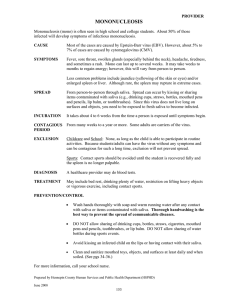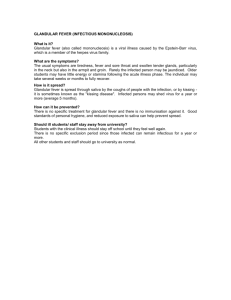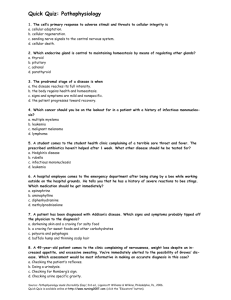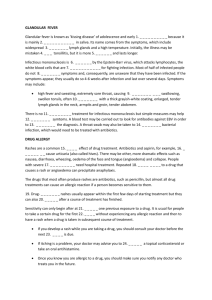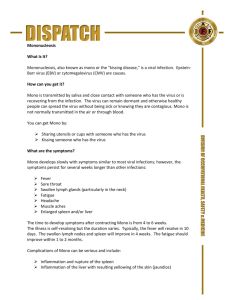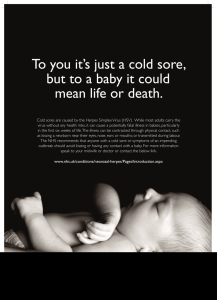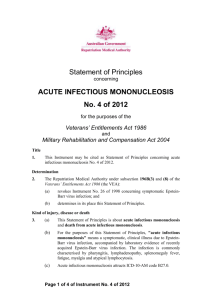Fact Sheet: Mononucleosis (Mono)
advertisement
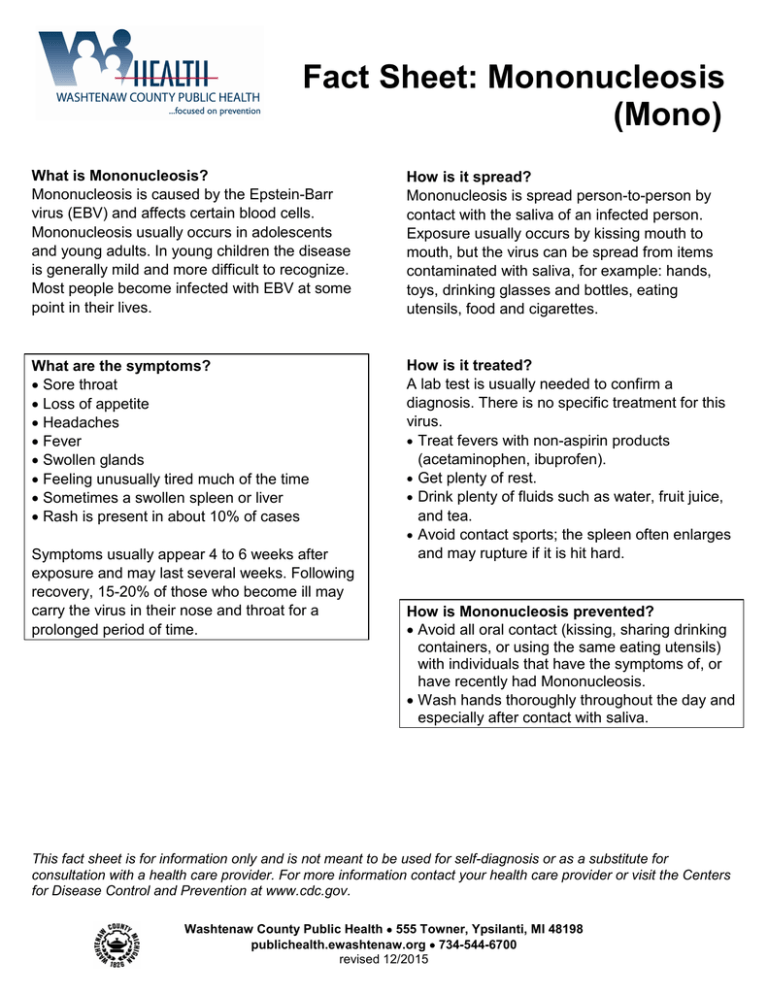
Fact Sheet: Mononucleosis (Mono) What is Mononucleosis? Mononucleosis is caused by the Epstein-Barr virus (EBV) and affects certain blood cells. Mononucleosis usually occurs in adolescents and young adults. In young children the disease is generally mild and more difficult to recognize. Most people become infected with EBV at some point in their lives. How is it spread? Mononucleosis is spread person-to-person by contact with the saliva of an infected person. Exposure usually occurs by kissing mouth to mouth, but the virus can be spread from items contaminated with saliva, for example: hands, toys, drinking glasses and bottles, eating utensils, food and cigarettes. What are the symptoms? • Sore throat • Loss of appetite • Headaches • Fever • Swollen glands • Feeling unusually tired much of the time • Sometimes a swollen spleen or liver • Rash is present in about 10% of cases How is it treated? A lab test is usually needed to confirm a diagnosis. There is no specific treatment for this virus. • Treat fevers with non-aspirin products (acetaminophen, ibuprofen). • Get plenty of rest. • Drink plenty of fluids such as water, fruit juice, and tea. • Avoid contact sports; the spleen often enlarges and may rupture if it is hit hard. Symptoms usually appear 4 to 6 weeks after exposure and may last several weeks. Following recovery, 15-20% of those who become ill may carry the virus in their nose and throat for a prolonged period of time. How is Mononucleosis prevented? • Avoid all oral contact (kissing, sharing drinking containers, or using the same eating utensils) with individuals that have the symptoms of, or have recently had Mononucleosis. • Wash hands thoroughly throughout the day and especially after contact with saliva. This fact sheet is for information only and is not meant to be used for self-diagnosis or as a substitute for consultation with a health care provider. For more information contact your health care provider or visit the Centers for Disease Control and Prevention at www.cdc.gov. Washtenaw County Public Health • 555 Towner, Ypsilanti, MI 48198 publichealth.ewashtenaw.org • 734-544-6700 revised 12/2015
